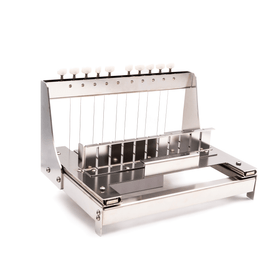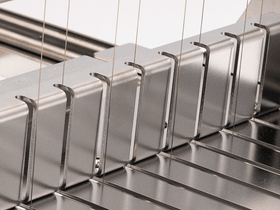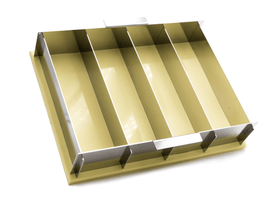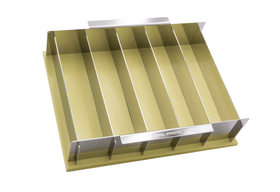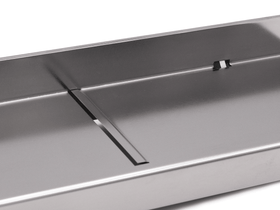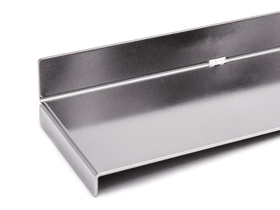In the realm of tool manufacturing, the choice of materials plays a crucial role not only in functionality, but also in environmental impact. Stainless steel emerges as a superior option over wood, acrylic, or silicone due to its sustainability, durability, and recyclability, making it a clear choice for environmentally conscious consumers.
Durability and Longevity
Stainless steel tools are renowned for their exceptional durability and longevity. Unlike wood, acrylic, or silicone, which are prone to wear, tear, and degradation over time, stainless steel tools retain their structural integrity even after prolonged use. This longevity translates to fewer replacements and reduced resource consumption, making stainless steel tools a sustainable choice in the long run.
Reduced Environmental Footprint
The manufacturing process of stainless steel involves minimal environmental impact compared to acrylic or silicone production. Stainless steel is primarily composed of iron, a readily available natural resource, with additional alloying elements for enhanced properties. In contrast, acrylic and silicone production often relies on petrochemical-based raw materials, contributing to carbon emissions, energy consumption, and environmental pollution.
Recyclability
Stainless steel stands out for its recyclability, offering a closed-loop lifecycle that minimizes waste and conserves resources. At the end of their lifespan, stainless steel tools can be recycled indefinitely without loss of quality or performance. In contrast, acrylic and silicone tools pose challenges in recycling due to their complex composition and limited recycling infrastructure, often ending up in landfills or incinerators.
Hygienic and Safe
Stainless steel's non-porous surface inhibits bacterial growth and facilitates easy cleaning, promoting hygiene and safety in soapmaking processes. Unlike wood, acrylic, or silicone, which may harbor bacteria and require specialized cleaning procedures, stainless steel tools offer a hygienic solution that aligns with health and environmental standards.
Versatility and Performance
Stainless steel tools excel in versatility and performance across various soapmaking tasks, from molding and cutting to trimming and beveling. Their inherent strength, stability, and resistance to corrosion ensure consistent results and efficient operations, enhancing productivity while minimizing waste.
A Clear Solution
The choice of stainless steel tools over wood, acrylic, or silicone represents a sustainable and environmentally friendly option for soap makers. With their durability, recyclability, hygienic properties, and superior performance, stainless steel tools not only support sustainable practices but also contribute to a cleaner, greener future for generations to come.

